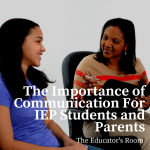It seems like by the time everything gets settled, the school year ends. Then in August, new freshmen arrive and need to be “broken in” to the high school climate. While we have amazing freshmen teachers to help with the adjustment period, sometimes they are not enough. In Japanese culture, there is a “senpai,” an older friend, a younger student looks up as a guide. This interesting concept is missing from American culture, however, the in a few American high schools, the mentor is appearing.
What is a mentor? A mentor is a usually a senior that is placed in charge of 15-20 freshmen. This big brother or sister helps the freshman adjust to the high school climate. The mentor delivers information about upcoming events, helps with Academic courses and gives advice.
What do mentors do? Many freshmen are overwhelmed with the transition from middle school to high school, the number of activities available increases as well as the personal accountability. Seniors have been in the environment for four years and understand the inner workings of sports, academics, dances, and other activities. They guide freshmen and help them find balance with all the activities.
Seniors have been through the majority of the courses offered on a high campus and at a small school, have developed relationships with the teachers. Seniors are an outside party and can offer advice on how the class is run and even offer tutoring for the course. Many freshmen do not feel comfortable talking with teachers or their parents about troubles in the classroom, but another student is more accessible and understanding in the eyes of a freshmen.
How do you implement a mentor program? You will need a teacher to guide the mentors and give regulations and expectations. Seniors are still students so they will need guidance on the do’s and don’t’s of mentoring. The teacher should be organized and on top on all activities and programs at the school. She will be the person the mentors come with unanswerable questions. Managing a team of senior mentors is a job in itself so she should not already be committed to several organizations.
The selection of mentors can be accomplished in several ways. Students can sign up and submit applications or teachers can nominate students. It goes without saying students should be positive role models. We want our freshmen to follow a set of what to do, not what not to do. Mentors do not have to be all football players and cheerleaders. There should be a wide range of student from athletes, band members, quiet students, academic all-stars, and even average students. This range gives every freshmen an opportunity to connect to someone a bit older and wiser and more accessible, making the transition to high school a little easier.
Here is a list of Mentor activities, feel free to add your own:
– School Tour during the summer
– Discussion of Class schedules
– Pep Rallies
– Tutoring
– Positive reinforcement
– Organization lessons
– Checking grades
– Meetings with mentee and teachers
– Icebreakers
– Sharing Personal experiences good and bad
I live by the philosophy that I am not the only teacher in my classroom. Allowing students to take on “teaching” roles helps them invest in the school environment and themselves. Seniors need confidence before entering college and the work force, allowing them to give answers builds this confidence. Students see things we cannot and it might be a student that can change another’s future for the better. Mentors are a great plus to any high school environment, especially if you are looking for new ways for students to get involved.





